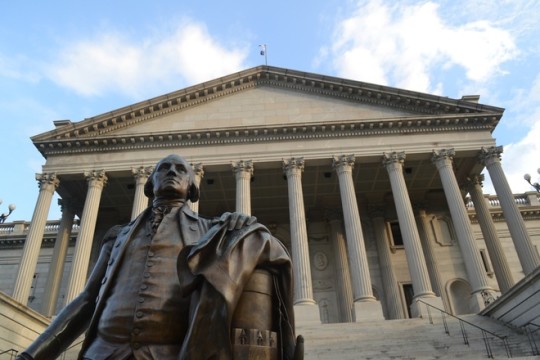
What about anonymous employment of lawmakers?
In her Tuesday column for The State, Cindi Ross Scoppe expressed outrage that out-of-state organizations can “distort” South Carolina elections by “bankrolling” candidates and issue advocacy campaigns. Readers familiar with Scoppe’s writing – and we have great respect for her work, though we occasionally disagree with her conclusions – will not be surprised to learn that most of her hostility is directed against advocates of school choice. The column is full of white-hot denunciations and over-the-top metaphors, so strongly does she feel on the subject: she refers at one point to a “secession of anonymous carpetbaggers who back their dump trucks full of cash up to our elections to buy their vision of a lawless society with a government shrunk small enough to drown in a bathtub.”
Whew!
Scoppe is certainly right to point out the – let’s call it – inconsistency of lawmakers’ complaints about out-of-state organizations and donations. “Legislators look the other way when outside interests support them,” she writes. “They only recognize the danger when they become the targets – as they all eventually will.”
Eventually she comes to the “anonymous carpetbaggers” du jour, Americans for Prosperity, which has campaigned energetically against raising the gas tax for the last several months. Americans for Prosperity, Scoppe writes, is “the flagship organization of the political network overseen by industrialist billionaires Charles G. and David H. Koch.” It’s not clear how “anonymous” a group can be when its financial sources are named – but leave that aside.
Leave aside, too, the issue of school choice and every other issue that attracts “anonymous” advocacy. We would simply like to point out another form of anonymity – a form far more pervasive and baleful, in our view, than any out-of-state campaign to achieve school choice. (And remember: After all these “distorted elections,” South Carolina has next to no school choice.)
We’re referring to the fact that elected officials in South Carolina are not required to disclose anything about their sources of income. A lawmaker can work, for example, as a “consultant” for an industry group and not disclose the connection at all – even as he introduces and/or debates and/or votes on legislation directly favoring that same industry group. A legislative leader with direct control over state procurement can earn millions from a concrete company that repeatedly gets state contracts – and he can simply neglect to disclose any of it.
Indeed, one of the only things that will ever require some state lawmakers to disclose their private income sources is a decision to run for federal office. Federal election laws require disclosure; state laws do not. And the only thing that might induce a South Carolina judge to disclose his or her income is a reporter for The Nerve asking for the information.
We could go on at length, but let’s simply ask this: If we’re going to be exercised about “dark money” and “anonymous” campaigns for school choice that don’t actually result in school choice, can we muster equal outrage about the anonymity of firms and interest groups that actually employ state lawmakers?
